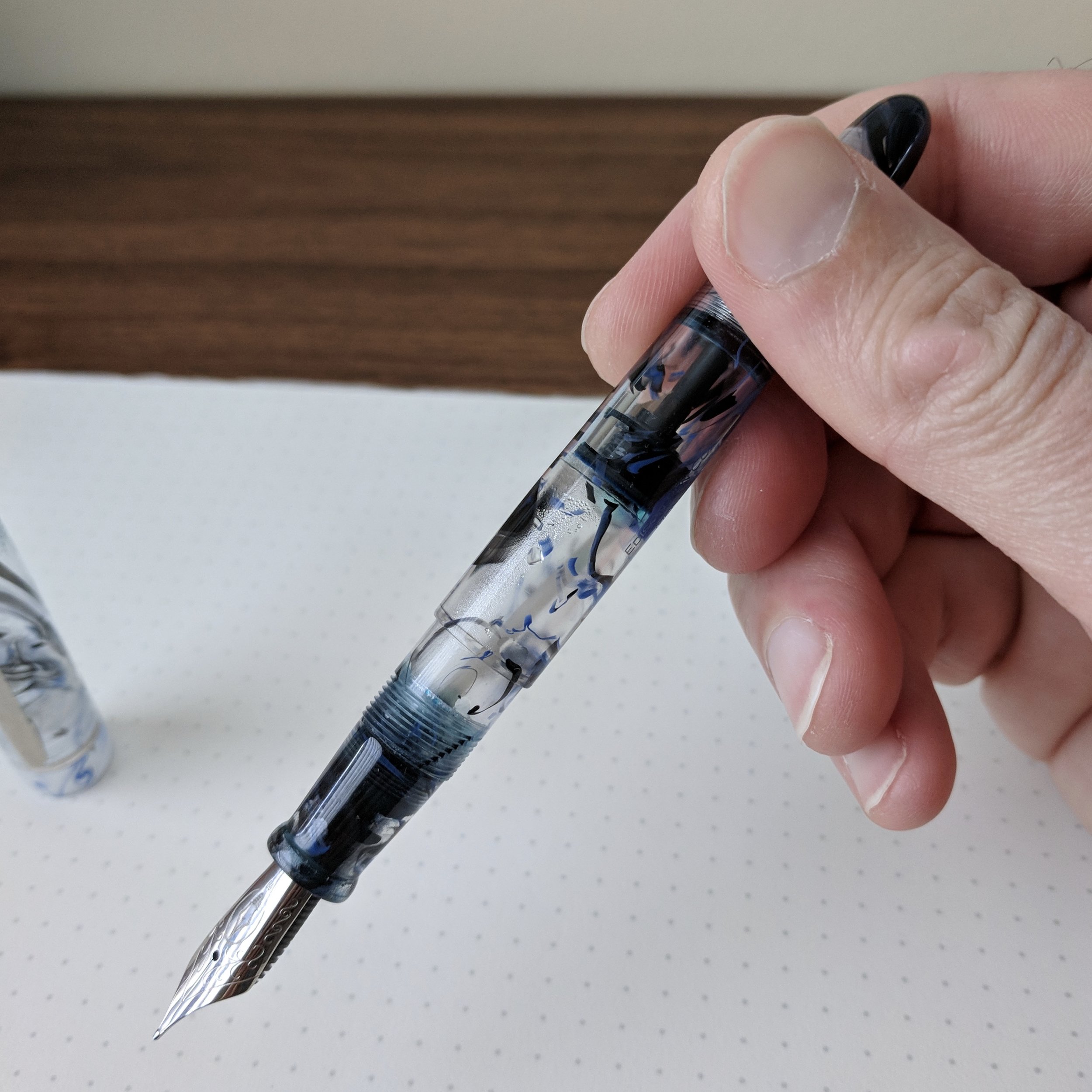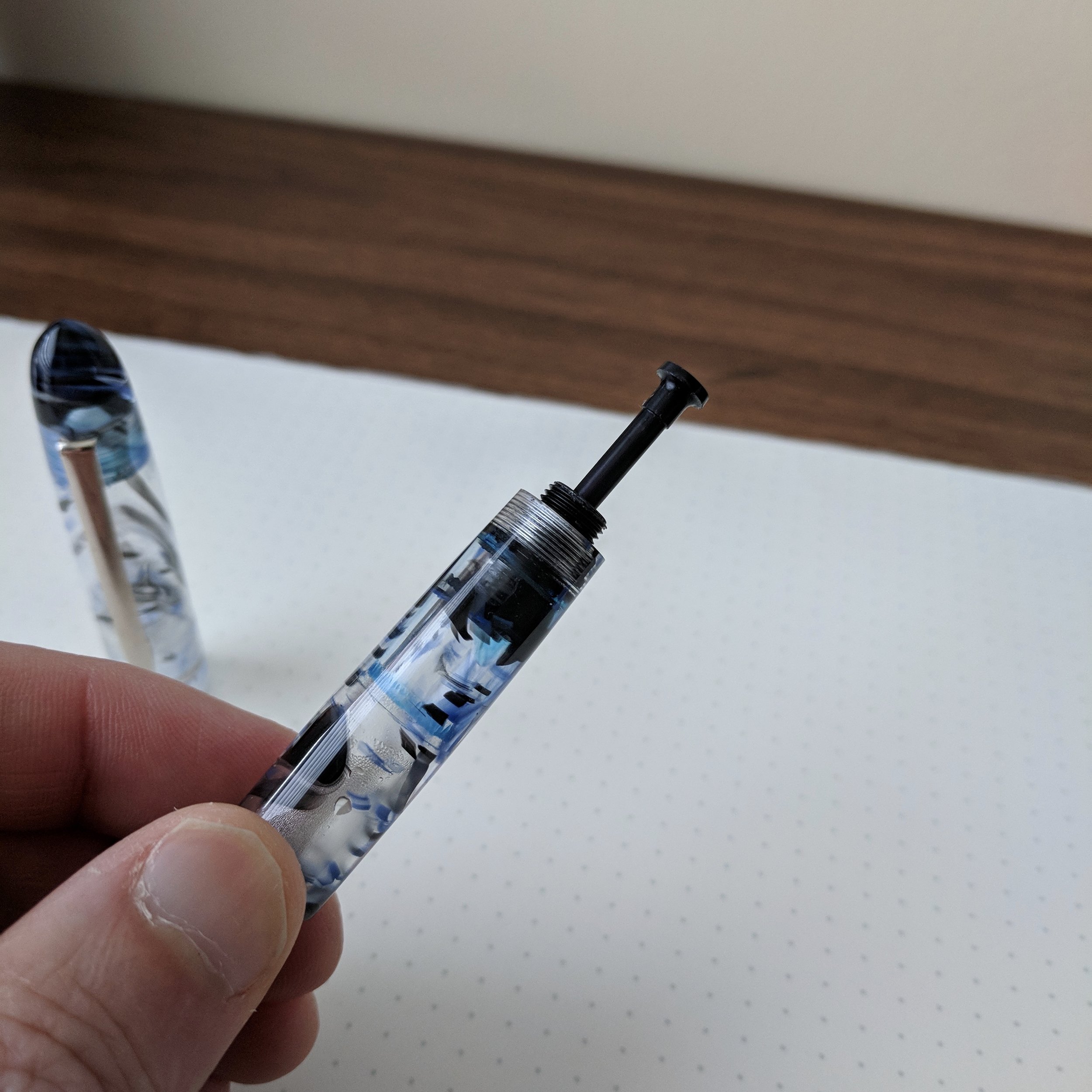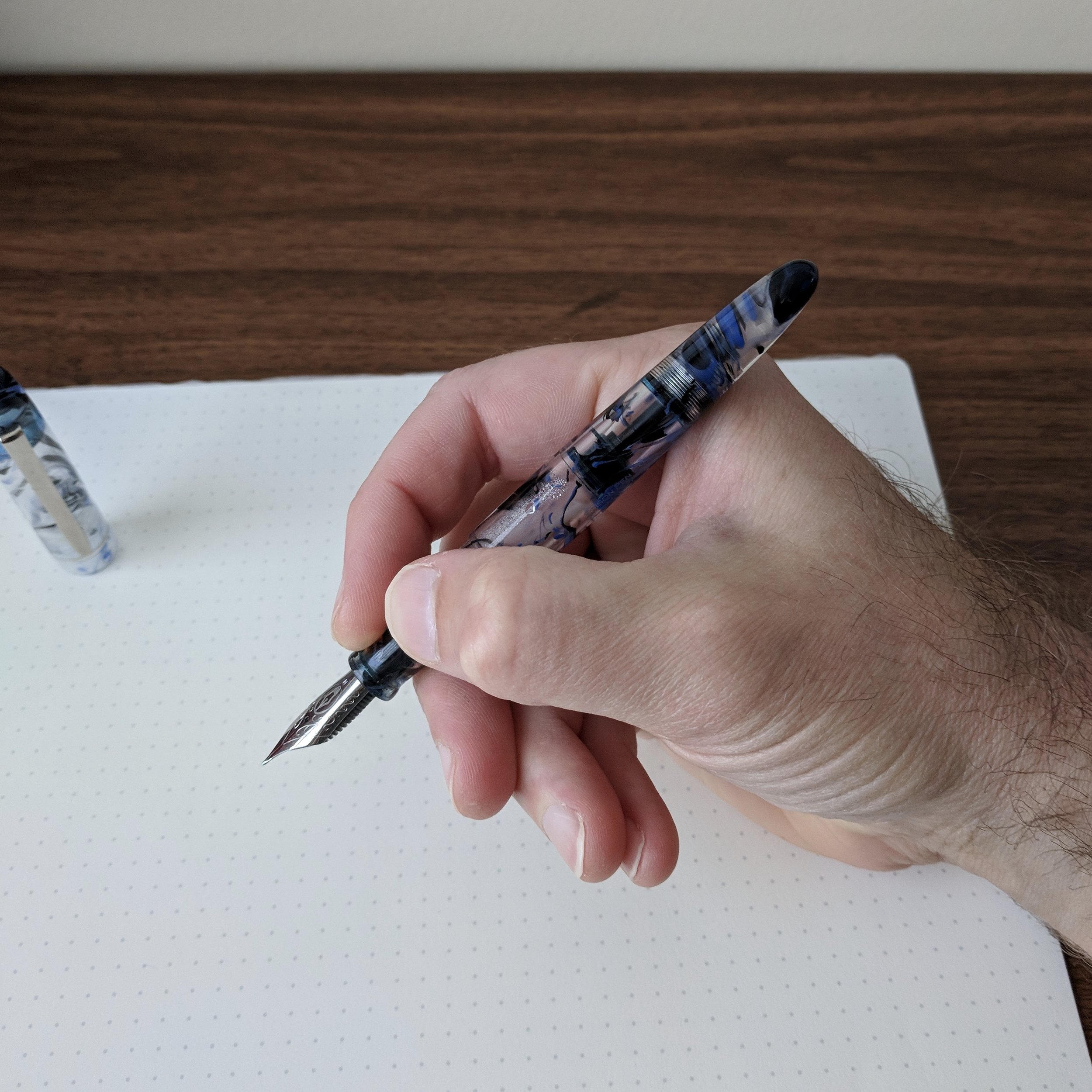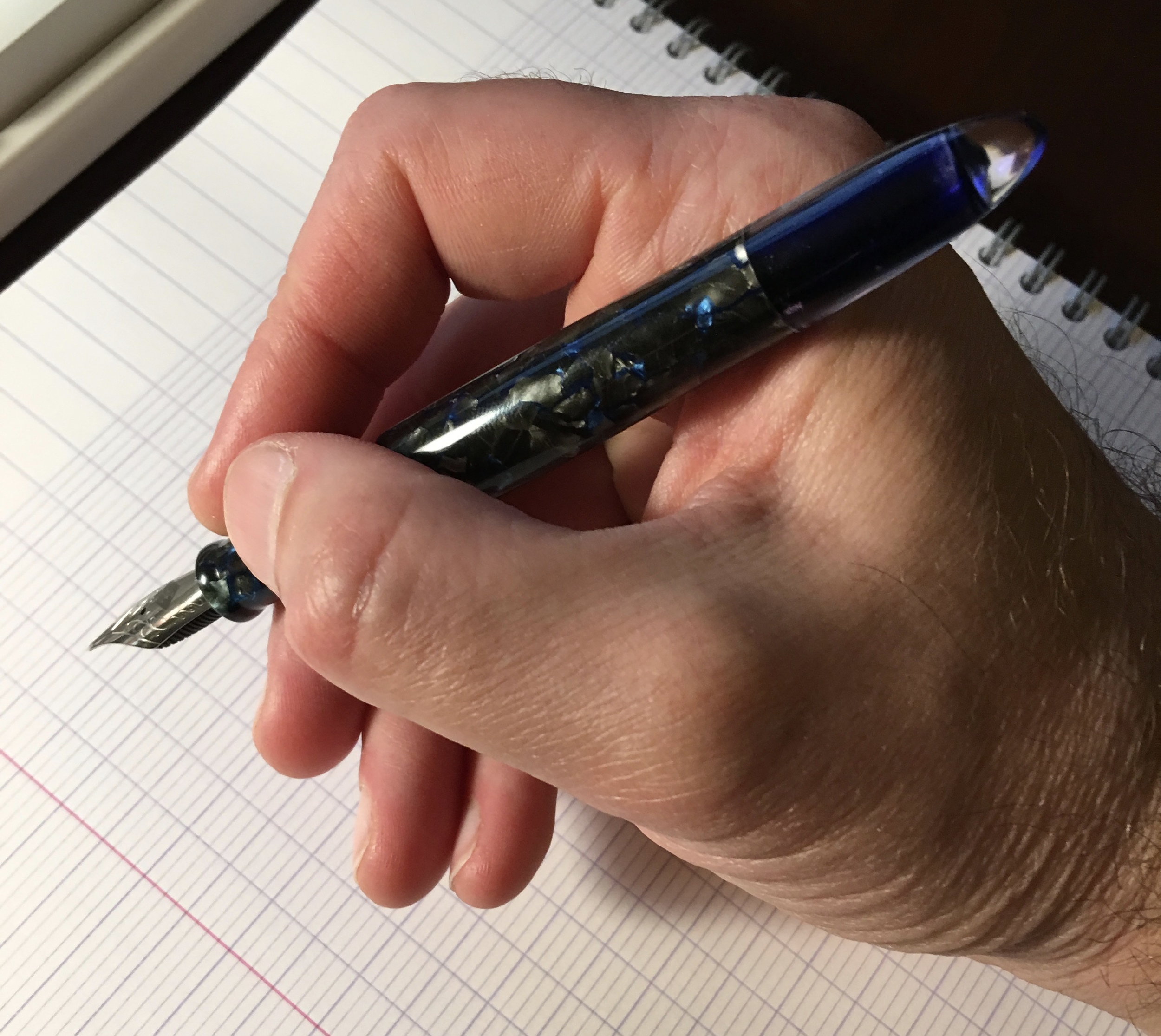My review of the Edison Menlo Draw Filler fountain pen has been in the works for nearly a year. Since I purchased this pen at last year's (2017) D.C. Pen Show, it's been in steady rotation. I've taken my time with this one because I wanted to give it a balanced write-up, which may be difficult because I like this pen so much. You may recall that I previously reviewed a slimmer eyedropper version of the Menlo, and I definitely prefer this version.
I instantly fell in love with the material on this pen, which reminds me of the swirls on the Visconti Homo Sapiens "London Fog."
The Edison Pen Company has been around for as long as I've been in the hobby (2013). My first custom pen was actually an Edison Mina that I picked up at my first pen show. Edison is located in Huron, Ohio and is run by Brian and Andrea Gray, who are absolutely awesome people who you should get to know when you visit a show. If you have the opportunity, the best way to learn about the various models of Edison pens isn't necessarily by reading online reviews, but by going to a pen show and spending some time at the Edison table discussing and handling the pens. I've purchased all of my Edison pens in person and have never come away disappointed.
This particular model, the Menlo, was initially released to showcase Brian's "pump filler" mechanism, a modern version of the traditional "vacumatic" filling system that incorporates a rubber sac, or diaphragm, to pump ink into the barrel. As most vintage pen aficionados are aware, however, rubber pen sacs don't last forever, and Brian started exploring ways in which he could combine the ink capacity of the pump filler with something that was easier to maintain and clean. The "draw filler" functions like a syringe. For a demonstration, check out this video.
A shot of the nib peeking through the transparent swirl acrylic.
What I Like/Love about the Menlo Draw Filler
- Construction. From the moment you pick it up, you notice that this pen is obviously sturdy and well-made. It's also gorgeous to look at. Brian has been making pens for a long time, and his experience shows in the quality of the end product.
- Weight. To me, the Menlo represents the Edison pen with the perfect combination of design and functionality. The pen looks great without sacrificing usability, especially in terms of size, weight, and balance. I absolutely love the fact that the draw filler gives you the ink capacity of a piston filler (and perhaps more) without the added weight of a piston filler. As a result, you can use the Menlo posted or unposted without dramatically altering the balance of the pen, which is a huge plus for me.
- Nib system and General Writing Experience. Like other Edison pens, the Menlo uses JoWo nibs, and each is hand tuned prior to shipping the pen. If you purchase from Edison at a show, they will adjust the nib for smoothness, ink flow, etc. with you there at the table. Also, since the ink is in contact with the back of the feed, as opposed to flowing through the narrow converter, my draw filler tends to be a wetter, smoother writer than my standard cartridge/converter pens, similar to an eyedropper (without the mess from filling).
Are there any drawbacks to the Menlo? Not many that I can think of. If you're a serial ink-switcher, and the ability to change inks regularly is important, you may want to forego the draw or pummp filler since they make the pen more difficult to flush and clean than your typical cartridge/converter system. That said, Edison can also make you a cartridge/converter Menlo. Another thing to note is that if you choose a Menlo with a special filling system - either the pump or the draw filler - the nib and feed have to be customized for the filling system and you will not be able to swap nibs out as easily as you would with a standard JoWo nib unit.
For comparison purposes, from left: Platinum 3776 in Chartres Blue; Pilot Custom 823; Edison Menlo; Sailor 1911 Black Luster; and Montblanc 146.
Takeaways and Where to Buy
The Edison Menlo is a fantastic fountain pen, and if you're in the market for a lightweight pen with a massive ink capacity to serve as your primary daily writer, it's easily one of your best options. I purchased this Edison Menlo at the 2017 D.C. Pen Show, at the Edison Pens table. Since the Menlo is part of the Edison Pens "Signature Line," it's considered a custom pen, though Edison keeps a selection of pens in stock that are available for order at any time. You can view their current stock of Menlo pump and draw fillers here. If you'd like a Menlo made in a specific material or configuration, reach out to Edison Pens via their website.
Pricing is fairly standard across the entire Edison Signature Line. Cartridge/converter pens start at $275 with a steel nib and $375 with an 18k gold nib. A different filling system, (bulb, pump, pneumatic, or draw filler, pictured here) adds $100 to the price, so the pen featured in this review would cost $375. Some specific materials may be more expensive than standard acrylic, and Edison also offers nib customizations.
Disclaimer: I paid for the pen featured in this review with my own money. I was not compensated in any way for this review.







